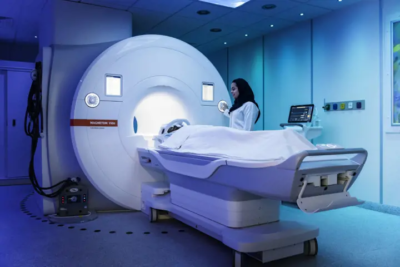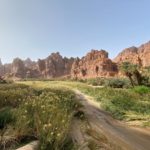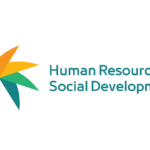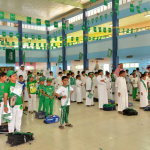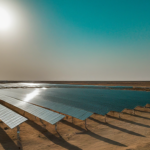
“In the UAE, the growth of EDGE has been catalysed by a strategy that begins with reaching back into the education system to academically prepare Emiratis to feed potential employees into the defence sector. That model is imitable if Saudi chose to go that route, but it’s not instantaneous… Of interest, looking at academic statistics in Saudi Arabia, should that happen, the majority of those future employees would be female.”
–Kirsten Fontenrose, Middle East security director at the Atlantic Council, commenting on Saudi Arabia’s plan to substantially grow its domestic weapons industry. [Middle East Eye]

“We’re going to have a large share [of the market for blue hydrogen]. The scale up isn’t going to happen before 2030. We’re not going to see large volumes of blue ammonia before then. From the time you make clear off-take agreements, you’re talking about a five- to six-year capital cycle to invest in the production and conversion requirements.”
–Ahmad Al-Khowaiter, Aramco’s chief technology officer, said in an interview with Bloomberg Television on Sunday in Dhahran, eastern Saudi Arabia, where the company’s based. [Bloomberg]

“Scale is a benefit that helps in relationship management, cost management and in negotiations, so it helps in many aspects which will improve returns.”
-Saad Al-Fadly, CEO of Hassana Investment Co, the investment management arm of the kingdom’s General Organization of Social Insurance (GOSI) which was recently combined with the Public Pension Agency to create a new entity with assets exceeding $250 billion. [Bloomberg]

“I thought he enjoyed it phenomenally. Bob Marley is a global icon and so all of our international visitors that come to Jamaica want to have a piece of understanding of the man himself – what made him tick and some of his phenomenal achievements and that of his family.”
-Donovan White, Director of Tourism at the Jamaica Tourist Board, describing Saudi Minister of Tourism, Ahmed Al-Khateeb’s visit to the Bob Marley Museum. The Saudi minister is on the island this week to participate in the 66th meeting of the United Nations World Tourism Organization’s Regional Commission of the Americas and the Ministerial Dialogue on ‘Reactivation of the tourism sector for inclusive growth’. [Jamaica Information Service]

“Shale is facing a second revolution. It had to change its relationship with investors and return money to investors and that’s what it’s doing. There’s a mantra of capital discipline that wasn’t there before.”
-Daniel Yergin, Pulitzer Prize-winning historian of the oil industry and Vice Chairman of IHS Markit consultancy, speaking with Frank Kane about OPEC+ and oil markets. [Arab News]

“Saudi Arabia at $130.3 billion is the 14th ranked worldwide investor in the US treasury bonds in April this year leading other Arab investors Kuwait ($45.8 billion) and UAE ($43.7 billion). Japan tops the list with $1.27 trillion worth of holdings.”
–Mubasher, the news website, reporting last week that Saudi Arabia has reduced its holdings of US treasury bonds to $130.3 billion in April, hitting the lowest level in eight months. [Mubasher]

“We have also seen an increase in listed debt issuances by Saudi corporates, particularly government-related entities (GREs), which represented about 90 percent of the about $26 billion listed corporate bond and sukuk issuance in 2019 and 2020.”
-Khalid Albihlal, head of S&P Global Ratings KSA, takes a deep dive into how Saudi Arabia will fund it’s $3.2 trillion economic reform plans and the state of development of Saudi banking and capital markets. [Arab News]

“The steps he has taken to implement taxes, raise the cost of foreign labor and encourage investment in non-oil sectors are part of a larger recognition that the Saudi economy has to change. He is unlikely to reach all the goals set in Vision 2030 to reduce the role of oil in the Saudi economy, but even if he achieves 25% of the goals, it will be a step in the right direction.”
–F. Gregory Gause III comments in an interview with the Institut Montaigne about Saudi Arabia, President Biden and MBS. [Institut Montaigne]

“According to data released by the United States Patent and Trademark Office (USPTO), in highlighting the vital role of patents in university research and innovation, King Abdul Aziz University rose to 33rd place in the list of the top 100 universities in the world in patents 2020, and jumped 50 places within a year, as it was 83rd in 2019, and King Saud University ranked 45th in the list of universities that were granted patents in the United States.”
–Saudi Arabia’s Ministry of Education, in a statement confirming that three Saudi government universities were among the first 50 universities in the list of the world’s top 100 universities granted patents in 2020. [MOE.gov.sa]

“Going forward, we expect to see an increase in international investment in mining, particularly because demand for minerals around the world is growing fast. According to geological surveys dating back 80 years, the kingdom has an estimated reserve of untapped mining potential valued at $1.3 trillion.”
-Khalid Al-Mudaifer, Saudi vice-minister for mining affairs, discussing plans to auction two major mining licenses in 2022 for commodities including gold, copper and zinc. [S&P Global]



